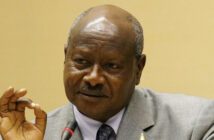The World Bank has thrown its weight behind President-elect, Maj.-Gen. Muhammadu Buhari (retd.), to probe the Nigerian National Petroleum Corporation over allegations of missing funds.
Speaking in a video conference from Washington to journalists from across Africa on the release of the bank’s analysis of issues shaping the continent entitled, ‘Africa’s Pulse’, top officials of the bank commended President Goodluck Jonathan for exhibiting political maturity after the March 28 presidential election that would end the tenure of his administration on May 29.
The World Bank’s Chief Economist for Africa, Mr. Francisco Ferreira, said looking into financial records of the country, especially allegation of corruption at the NNPC, would check impunity and build public institutions in the future.
He said, “One norm that has to change is the norm of impunity. I am from Brazil myself. So I am also used to a country where people could be corrupt and escape justice. That keeps the people to keep doing it.
“So, the current stand of the government-elect to look into what happened in the past hopefully will have consequences for the future. And those consequences will be that institutions will be stronger; norms will be cleaner and people will not have to steal millions of dollars from the Nigerian National Petroleum Corporation.
“People have alleged in the past that there had been major corruption scandals there. If that stops, then that will have very high returns in terms of the money staying around to be spent on education, health, roads and power that the poor people across the country need. “So, my sense is that it will be good to promote cleanliness in politics.”
Answering question on some other African countries that have elections between 2015 and 2017, Ferreira said there was no need to be afraid, adding that the fear of elections would drive away investments from the region.
He said the example that had been shown by Jonathan and Nigeria in the just-concluded general election showed that the continent could get it right in terms of transition to new governments.
Ferreira praised Jonathan for political maturity that he exhibited during the elections, adding that if Nigeria could get it right; other countries in the region should also be able to get it right.
Answering a question from a South African journalist on the possibility of the country overtaking Nigeria as the largest economy on the continent given the fall of Nigeria’s main export, crude oil, Ferreira said it did not look plausible.
Also answering a question from an Angolan journalist on who between Nigeria and his country was managing the fall in oil prices better, the World Bank expert said both countries were doing well in putting measures in place to check the decline.
He praised both countries for allowing their currencies to float according to market forces rather than living in denial of the crisis occasioned by the decline in crude oil exports.
Ferreira, however, added that Nigeria stood a better chance to recover faster from the decline because the structure of the country’s economy was more diversified than that of Angola.
The report, Africa’s Pulse, presented by the World Bank Lead Economist for Africa, Punan Chuhan-Pole, stated that sub-Saharan Africa’s growth would slow in 2015 to four per cent from 4.5 per cent in 2014.
The downturn largely reflects the fall in the prices of oil and other commodities, according to the twice-yearly analysis of the issues shaping Africa’s economic prospects.
The 2015 forecast is below the 4.4 per cent average annual growth rate of the past two decades, and well short of Africa’s peak growth rates of 6.4 per cent in 2002-08.
Excluding South Africa, the average growth for the rest of sub-Saharan Africa was forecast to be around 4.7 per cent.
The World Bank Vice- President for Africa, Mr. Makhtar Diop, said, “Despite strong headwinds and new challenges, sub-Saharan Africa is still experiencing growth. And with challenges come opportunities.
“The end of the commodity super-cycle has provided a window of opportunity to push ahead with the next wave of structural reforms and make Africa’s growth more effective at reducing poverty.”
Sub-Saharan Africa is a net exporter of primary commodities. Oil is the most important commodity traded in the region, followed by gold and natural gas, the report stated.
It added that over 90 per cent of the total exports of eight major oil-exporting countries came from the three biggest exports of each country, which represent nearly 30 per cent of their GDP.
Recent price declines are not confined to oil, the report said; adding that the prices of other commodities were now more closely correlated both with oil prices and with one another.
As a result, terms of trade are declining widely among most countries in the region, according to the report, which asserted that the 36 African countries with expected terms of trade deterioration were home to 80 per cent of the population and 70 per cent of the economic activities in the region.




